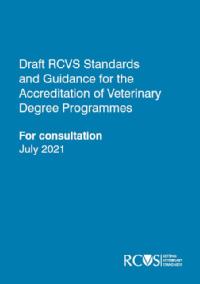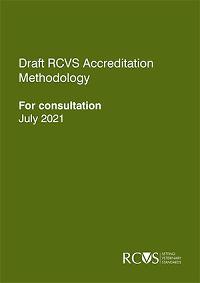-
-
- Standards Committee
- Advancement of the Professions Committee
- Audit and Risk Committee
- Education Committee
- Disciplinary Committee
- Charter Case Committee
- Preliminary Investigation Committee and Disciplinary Committee Liaison Committee
- Registration Committee
- Preliminary Investigation Committee
- Paper classification: some definitions
-
-
-
-
- About extra-mural studies (EMS)
- EMS requirements
- Information for vet students
- Information for EMS providers
- Information for vet schools
- Temporary EMS requirements
- Practice by students - regulations
- Health and safety on EMS placements
- EMS contacts and further guidance
- Extra-mural studies fit for the future
-
-
- Code of Professional Conduct for Veterinary Surgeons
- Code of Professional Conduct for Veterinary Nurses
- Contact the Advice Team
- XL Bully dog ban
- 'Under care' - guidance
- Advice on Schedule 3
- Controlled Drugs Guidance – A to Z
- Dealing with Difficult Situations webinar recordings
- FAQs – Common medicines pitfalls
- FAQs – Routine veterinary practice and clinical veterinary research
- FAQs – Advertising of practice names
- GDPR – RCVS information and Q&As
-
- Accrediting veterinary degrees
- Accrediting veterinary nursing qualifications
- Reasonable adjustments for student vets
- Health and disability in veterinary medicine study and practice
- The role of the veterinary schools and the RCVS
- Reasonable adjustments and the Equality Act 2010
- Reasonable adjustments and Day One Competences
- Examples of reasonable adjustments for vet students
- Annex
- Reasonable adjustments for student vets - summary
- Reasonable adjustments for student veterinary nurses
- Health and disability in veterinary nurse education and training
- Reasonable adjustments for students and the UK disability discrimination legislation
- Educational assessment of veterinary nurses
- Roles of key stakeholders in the application of reasonable adjustments
- Examples of reasonable adjustments for vet nurse students
- Embracing reasonable adjustments for student vet nurses - summary
- External review of the RCVS by ENQA
- Requirements for remote and online student assessments
Draft Accreditation Standards and Accreditation Methodology for veterinary degree programmes
Please note: this consultation has now closed.
We have launched a six-week consultation to seek feedback on our proposed new standards against which we will be assessing veterinary degree programmes, as well as the methods we will use to evaluate whether these standards are being met.
Background
The current accreditation standards for veterinary degrees were developed in 2014 (implemented in 2015), and it was agreed in September 2019 that a comprehensive review should be carried out to ensure they remained fit for purpose, robust across different models of curricula and programme delivery and in-line with international best practice.
The review process has included the consideration of a systematic review of published literature regarding best practice in accreditation and quality improvement, as well as in-depth feedback from a wide range of stakeholders within the veterinary and other health professions, as well as the vet schools themselves.
The new draft standards and methodology that were developed following this review were approved for consultation at the June 2021 meeting of RCVS Council. The documentation has now been published and we are asking for members of the profession to read this documentation, and then provide feedback both on the standards and the methodology.
Further information about the draft accreditation standards and methodology are set out below, along with details about how to respond to the consultation, which ends at 5pm on 2 September 2021.
Draft Accreditation Standards
 This consultation is an opportunity for members of the veterinary professions, and veterinary stakeholder organisations, to have their say on how the future veterinary surgeons are educated, trained, and prepared for life as a professional veterinary surgeon upon graduation.
This consultation is an opportunity for members of the veterinary professions, and veterinary stakeholder organisations, to have their say on how the future veterinary surgeons are educated, trained, and prepared for life as a professional veterinary surgeon upon graduation.
There are 75 individual standards overall, organised within six overarching domains. These are:
- The Learning Environment
- Organisation Culture and Values
- Education Governance and Quality Improvement
- Supporting Students
- Supporting Educators
- Curricula and Assessment
The new draft standards cover all the areas previously considered during accreditation, as well as some key strategic aims of the RCVS around bolstering diversity and inclusion policies; ensuring there is appropriate health and welfare support for students and faculty members; inculcating a reflective, learning culture within the veterinary professions; and, ensuring that continuous quality improvement is integrated within veterinary schools.
Before undertaking the survey, please make sure to read the documentation which includes the full Accreditation Standards and the accompanying guidance, as well as the policy and guidance on extra-mural studies, and definitions around ‘clinical education’. The survey will then ask you to give your feedback on the standards within each of the six overarching domains.
Your responses will be treated confidentially but will help to influence our accreditation policy – and therefore what we expect from vet schools and new graduates – for many years to come.
Download the Draft Accreditation Standards [PDF]
Draft Accreditation Methodology
 The Accreditation Standards describe what we are looking for regarding veterinary degree programmes. However, this review has also considered the means by which accreditation is carried out, ie how we will go about determining if veterinary programmes fulfil the criteria we have set out.
The Accreditation Standards describe what we are looking for regarding veterinary degree programmes. However, this review has also considered the means by which accreditation is carried out, ie how we will go about determining if veterinary programmes fulfil the criteria we have set out.
We have proposed substantial changes to the methodology to make it current and suitable for all types of veterinary programme, regardless of the curriculum or delivery model.
We are proposing to move from a process previously based primarily on the consideration of ‘inputs’, eg policies and procedures, to a hybrid approach which increasingly considers evidence on the outcomes of the programme when evaluating whether standards are being met.
This approach provides a greater degree of assurance, with sufficient flexibility for schools to be able to demonstrate that educational standards are being achieved across different models of programme delivery, including ‘traditional’ university settings, community-based or distributed partnerships and work-based approaches.
Our new proposals also describe a more risk-based approach to accreditation. This means that established schools which routinely collect and submit robust evidence of quality and clearly demonstrate positive outcomes may have a more focused in-person visit from our accreditation panel, than perhaps a new school which is at an earlier stage in the collection of such evidence.
Our annual monitoring data will also allow us to recognise emerging issues early and take action when required.
For the consultation, we would appreciate feedback on all aspects of the methodology, including the evidence-preparation stage that takes place at the start of an accreditation event, the evidence review, the visitation, and the process by which evidence gathered during the stages of the accreditation event is then assessed and evaluated by the Accreditation Panel, the RCVS Primary Qualifications Subcommittee, and the RCVS Education Committee.
Before completing the survey, please make sure to read the Accreditation Methodology document, as well as the accreditation event rubric, which is the table by which the evidence provided will be assessed.
Your responses will be treated confidentially but will be invaluable to helping us determine how we accredit veterinary programmes in the future.
Download the Draft Accreditation Methodology [PDF]
How to respond
Vets and vet nurses
We have emailed all veterinary surgeons and veterinary nurses with a direct link to the survey – but you can also access the survey via the following link:
Please remember to read the documentation available on this page before or during your completion of the survey.
The deadline for responses is 5pm on 2 September 2021.
Vet students
If you are a veterinary student you are very welcome to complete the survey on our draft accreditation standards and accreditation methodology. Please use the following link:
Please remember to read the documentation available on this page before or during your completion of the survey and do feel free to spread the word about the survey amongst your peers!
The deadline for responses is 5pm on 2 September 2021.
Veterinary organisations and other members of the practice team
We would welcome feedback from veterinary organisations and other members of the practice team for this consultation. Please use the following link:
Please remember to read the documentation available on this page before or during your completion of the survey and do feel free to encourage other members of your practice team to take part as well.
The deadline for responses is 5pm on 2 September 2021.